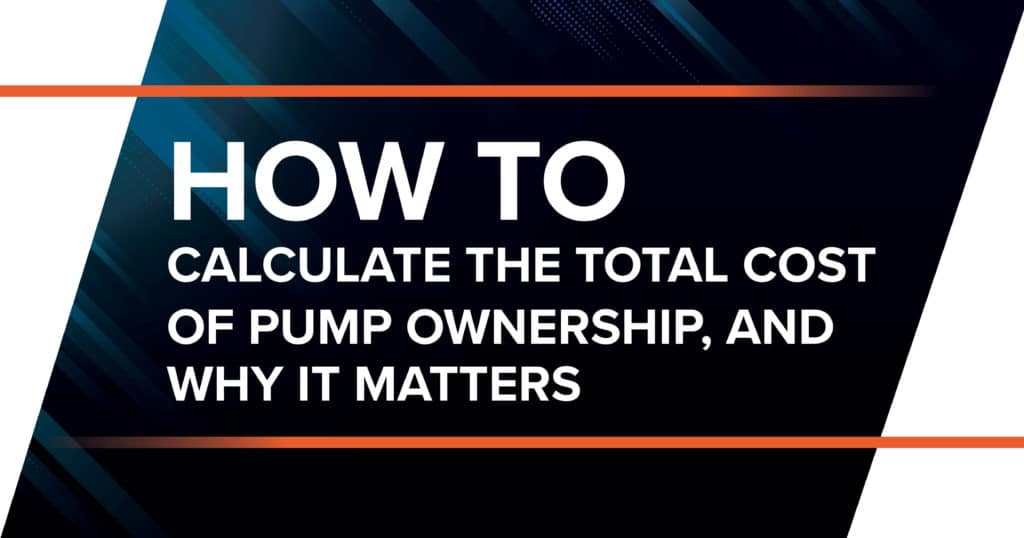We all know that industrial pump equipment is not cheap. You have to buy it. You have to configure and install it properly. You have to maintain it. You have to repair it if and when it breaks down. And, of course, you have to pay for its operation, whether it uses electricity or burns fuel.
Knowing the total cost of ownership (TCO) is critical for any operation when dealing with pump systems and equipment. It is vital to calculate all of the expenses of owning and operating the pumps and accessories, whether you are looking to optimize your current system or you are thinking of purchasing new equipment.
According to the pump experts at Cortech DXP, here are some of the important factors you will want to consider for total cost of ownership. You’ll be able to crunch the numbers and make the best decisions for your plant.
Base Equipment Cost
Unfortunately, this is often the only thing that operators look at when buying pump equipment. They only worry about how much the pump is going to cost upfront, and then ignore other factors until they be become concerns later on. Of course, you want to weigh the pros and cons of any equipment you are thinking about buying, but the purchase price is only one factor. Will a more expensive pump give you better performance and production? Will a less expensive pump get the job done well enough based on your specific application?
The Right Pump Equipment
On the heels of the point above, it’s important to buy a pump system that will work best for your particular application. If a pump isn’t designed to handle what you need to put through it (in terms of materials or volume), then you may end up spending more money over time on repairs, poor energy efficiency or lost production potential.
Output
The conveying capacity of the pump is ultimately one of the most important things to look at. Ultimately, its overall production will affect your bottom line more than anything else. Can the pump system handle the materials you need to process? Can it achieve the desired pressures and target flow rates? Will it give you dependable performance over a long period of time?
Energy Efficiency
Another critical factor these days is energy efficiency. Whether the pump equipment runs on fuel or electricity, you have to look at your overall ownership costs in terms of energy consumption. A more energy-efficient pump that is designed to handle your application may cost you more up front but will save you money over time in operational expenses.
Configuration, Installation & Accessories
Beyond just the pump itself, you have to know it will cost you money to get the entire pump system designed and installed. This means custom base plates, possible accessories depending on your application, professional installation and alignment, and more. These are all part of your total cost of ownership that you need to calculate.
Maintenance & Repairs
Required maintenance for the pump equipment is also very important to take into consideration. How often does maintenance need to be performed? How much do replacement seals, impellers, bearings, lubrication and other components cost? What are common repairs and failures associated with that piece of equipment? Understanding your ongoing maintenance and repair expenses is extremely helpful when you are considering optimizing your current system versus upgrading to new equipment.
Production & Performance
Last but not least, you have to look at the positive side. What will the pump system net you in terms of production and performance? If you are able to process more materials and increase productivity over time, how will that benefit your operation? A pump system may cost you X to own and operate, but it generates Y in overall income for your businesses. When doing your calculations, remember to subtract Y from X to get your total cost of ownership (TCO).
This is a pretty simplified overview of the factors you need to consider when calculating total cost of pump equipment ownership, and why it is so important to run these calculations. For help in selecting the right pumps or setting up a professional installation, maintenance and repair plan, contact Cortech DXP today.

